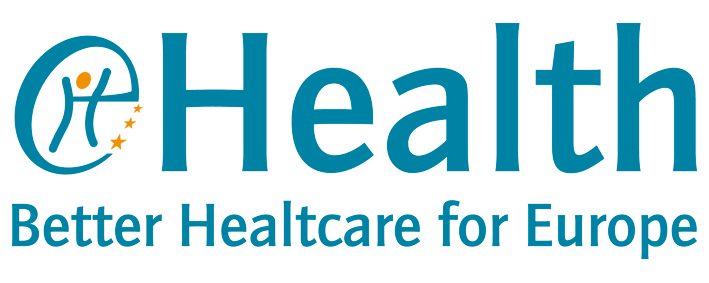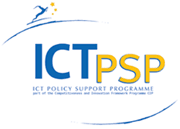Hot Spot 4
On 6th June 2013, inCASA will be represented by In-JeT at The Danish Welfare Technology Exhibition and Conference. In-JeT will have an exhibition stand demonstrating the project’s technical solution and results. Specifically, the transferability capabilities of inCASA will be demonstrated using the results from the municipality of Skive who is currently testing the inCASA solution. The demonstration will include the touch screen and some of the devices used by chronic elderly patients in Skive and visitors to the stand will have the opportunity to try the devices themselves. In addition to the exhibition, representatives from Skive municipality will, in cooperation with In-JeT, give a presentation at the conference about their experiences with using the inCASA solution.
The annual conference is aimed at Danish municipal and regional healthcare and social care staff working with telemedicine. The Minister for Economic Affairs and the Interior, Margrethe Vestager, and former Health Minister, Arne Rolighed, are among the many prominent speakers at the conference. The programme can be downloaded here (in Danish).
Hot Spot 3
The Italian national Exploitation Event was organized in the framework of the eHealth conference that was held on the 28th of May 2013 in Rome. REPLY, INVENT and ATC sponsored the event all day, by placing an inCASA stand. The Conference was sponsored mainly by: The Ministry of Health
The Ministry of Economic Development
SIRM: an Italian association on Medical Radiology
AICC: an Italian association on Clinical Engineering
Moreover, a specific inCASA workshop was organized within the event demonstrating the inCASA approach, the technical solution, the services and evidence of the inCASA results, presented by involved inCASA Pilot professionals.
The full agenda of the inCASA session in the eHealth Forum is available online
Hot Spot 2
INSERM, along with TID and REPLY, submitted an abstract paper for the annual meeting of the American Society of Clinical Oncology (ASCO). The paper was accepted and inCASA project was presented at a very important event in the healthcare domain on 2nd of June 2012 at Chicago. The inCASA poster can be found here.
The submitted work is focused on the French pilot study and is entitled 'The European inCASA telecare-telehealth electronic platform for the daily assessment of symptoms, weight and activity in cancer patients on chronotherapy at home.'
Additional information regarding the INSERM pilot site activities can be viewed at http://rbc.vjf.inserm.fr
Hot Spot 1
First pilot in planning: The first inCASA pilot is being planned with the partner Agenzia Territoriale per la casa della Provincia di Torino. ATC Torino is the public body with responsibility for social and public housing in the area of Torino and its surroundings. The Pilot will focus on user behaviour, providing an useful profile to search and determine behaviour that could lead to health problems.
More...
The annual conference is aimed at Danish municipal and regional healthcare and social care staff working with telemedicine. The Minister for Economic Affairs and the Interior, Margrethe Vestager, and former Health Minister, Arne Rolighed, are among the many prominent speakers at the conference. The programme can be downloaded here (in Danish).
Hot Spot 3

The Italian national Exploitation Event was organized in the framework of the eHealth conference that was held on the 28th of May 2013 in Rome. REPLY, INVENT and ATC sponsored the event all day, by placing an inCASA stand. The Conference was sponsored mainly by:
Moreover, a specific inCASA workshop was organized within the event demonstrating the inCASA approach, the technical solution, the services and evidence of the inCASA results, presented by involved inCASA Pilot professionals.
The full agenda of the inCASA session in the eHealth Forum is available online
Hot Spot 2

INSERM, along with TID and REPLY, submitted an abstract paper for the annual meeting of the American Society of Clinical Oncology (ASCO). The paper was accepted and inCASA project was presented at a very important event in the healthcare domain on 2nd of June 2012 at Chicago. The inCASA poster can be found here.
The submitted work is focused on the French pilot study and is entitled 'The European inCASA telecare-telehealth electronic platform for the daily assessment of symptoms, weight and activity in cancer patients on chronotherapy at home.'
Additional information regarding the INSERM pilot site activities can be viewed at http://rbc.vjf.inserm.fr
Hot Spot 1

First pilot in planning: The first inCASA pilot is being planned with the partner Agenzia Territoriale per la casa della Provincia di Torino. ATC Torino is the public body with responsibility for social and public housing in the area of Torino and its surroundings. The Pilot will focus on user behaviour, providing an useful profile to search and determine behaviour that could lead to health problems.
More...
Affiliations
inCASA is affilliated with these programs and organisations:
The inCASA project supports the Commissions activities in ICT for Health: eHealth.

The inCASA platform allows for the creation of inclusive applications with accessibility for all. The project supports the Commissions campaign: eInclusion - be part of it!

The inCASA project supports the Ageing Well Thematic Network which aims at creating a Community of Actors interested in improving the life of Elderly People by promoting the market uptake of ICT solutions for Ageing Well!

The inCASA project supports the Commissions activities in ICT for Health: eHealth.

The inCASA platform allows for the creation of inclusive applications with accessibility for all. The project supports the Commissions campaign: eInclusion - be part of it!

The inCASA project supports the Ageing Well Thematic Network which aims at creating a Community of Actors interested in improving the life of Elderly People by promoting the market uptake of ICT solutions for Ageing Well!

Sign In
inCASA Pilots
inCASA pilots wants to demonstrate how the use of information and communications technologies (ICT) helps providing better quality healthcare throughout the existing or upcoming local experiences, at a stable or lower cost, and to reduce waiting times and errors. The aim of the action plan is to improve the settings of existing devices and to identify practical steps to achieve developing electronic systems for health records, patient-frail people monitoring and the faster rollout of targeted healthcare services.
The Pilots will be implemented by putting together and involving Health Local Agencies, Doctors, Engineers, Psychologists and all the Care-Givers concerned with the elderly, starting from the early stage of the service development, fulfilling the necessary requirement to work with other partners in different countries for sharing evidence of best practice in this field. The Pilot countries involved in the project are:
1. Italy (ATC Agenzia Territoriale per la Casa della Provincia di Torino)
2. Greece (Konstantopouleio General Hospital of Nea Ionia)
3. Spain (FundaciĂłn Hospital Calahorra)
4. France (Institut National de la Sante et de la RechercheMedicale)
5. United Kingdom (Chorleywood Health Centre)
Solutions will be piloted in different service’s scenarios and deployed using different kinds of Social and Health Care Network and experiences pre-existence, finally according to local environment. Pilots will involve self-sufficient elderly people (60-80 years old) living at their own homes or in social housing structures. Service Provider will be provided by local authorities within ad-hoc structures; in such structures operators will take a very active role in Service Model Elaboration, and provide support while implementing the solution.
The set of sensors installed in elderly homes will be connected to the Local Service Provider centre, via wired or wireless broadband communications, depending on network availability. The monitoring data coming from Motion Sensors at home will be stored in the smart phone/base Station and periodically (or real time where applicable) sent to the central point of contact.
Given that the solution will collect personal data for social and clinical purposes and will involve medical devices, a clinical trial protocol will be settled. The existence of a clinical trial protocol will allow pilot analysts on each country to perform the study so that collected data will be combined easily.
Pilot implementation methodology
Pilot Evaluation
The Pilot evaluation will be the critical part of the pilot phase, and will be based on the basic concept included in the project acronym (Integrated Network for Completely Assisted Senior citizen’s Autonomy):
Integrated Network: major efforts are currently underway to establish health information networks. By the end of 2009 the majority of European health organisations should be able to provide online services such as tele-consultation (second medical opinion), e-prescriptions, e-referral, tele-monitoring and tele-care (remote monitoring of patients in their own homes), that’s why involve all safety system’s players and share the results, can be a strategic action to ensure the piloting success.
Completely Assisted: evaluate medical benefits alongside the target and the piloting process, define patient satisfaction level, all actors continuously monitoring , manage control system and refinement actions.
Senior: information for frail people, citizens, local health authorities and welfare institutions. As part of its work providing information for citizens/patient, for local health and national authorities through reports, health card, internet, news letter etc. This activity can maximise the consensus and the acceptability level of our device.
Citizen’s Autonomy: e-Health service must be supported by the widespread dissemination of best practices. These should include the impact on access to healthcare and on its quality, assessments of cost benefits and productivity gains, as well as examples of addressing liability in telemedicine services, reimbursement schemes, and accreditation of e-Health products and services.
Considering EU traditional indicators for elderly people, the Key Performance Indicators measured during pilots will be:
1. Health and Social Cover (Life expectancy of elderly people)
2. Support (Elderly people and external contacts)
3. Skill acquisition 4. Expectations and level of satisfaction
The Pilots will be implemented by putting together and involving Health Local Agencies, Doctors, Engineers, Psychologists and all the Care-Givers concerned with the elderly, starting from the early stage of the service development, fulfilling the necessary requirement to work with other partners in different countries for sharing evidence of best practice in this field. The Pilot countries involved in the project are:
1. Italy (ATC Agenzia Territoriale per la Casa della Provincia di Torino)
2. Greece (Konstantopouleio General Hospital of Nea Ionia)
3. Spain (FundaciĂłn Hospital Calahorra)
4. France (Institut National de la Sante et de la RechercheMedicale)
5. United Kingdom (Chorleywood Health Centre)
Solutions will be piloted in different service’s scenarios and deployed using different kinds of Social and Health Care Network and experiences pre-existence, finally according to local environment. Pilots will involve self-sufficient elderly people (60-80 years old) living at their own homes or in social housing structures. Service Provider will be provided by local authorities within ad-hoc structures; in such structures operators will take a very active role in Service Model Elaboration, and provide support while implementing the solution.
The set of sensors installed in elderly homes will be connected to the Local Service Provider centre, via wired or wireless broadband communications, depending on network availability. The monitoring data coming from Motion Sensors at home will be stored in the smart phone/base Station and periodically (or real time where applicable) sent to the central point of contact.
Given that the solution will collect personal data for social and clinical purposes and will involve medical devices, a clinical trial protocol will be settled. The existence of a clinical trial protocol will allow pilot analysts on each country to perform the study so that collected data will be combined easily.
Pilot implementation methodology
- Phase1: define target users / describe frail people profiles and relevant parameters to be collected / define data model / define an assessment plan / recruit small group patients (for range of age, disease groups, health relevant parameters)
- Phase 2a: establish a pre-pilot with a limited number of users (already during the integration phase) / finalize installation process, device testing / intermediate interviews to the testing group / check requirements
- Phase 2b: recruit large testing group with the overall number of users / provide and install hardware / intermediate interviews to the entire testing group / collection of parametric data
- Phase 3: data collecting and comparison / results analysis / architecture refinement action (software settings, service settings) / validate product and services
Pilot Evaluation
The Pilot evaluation will be the critical part of the pilot phase, and will be based on the basic concept included in the project acronym (Integrated Network for Completely Assisted Senior citizen’s Autonomy):
Integrated Network: major efforts are currently underway to establish health information networks. By the end of 2009 the majority of European health organisations should be able to provide online services such as tele-consultation (second medical opinion), e-prescriptions, e-referral, tele-monitoring and tele-care (remote monitoring of patients in their own homes), that’s why involve all safety system’s players and share the results, can be a strategic action to ensure the piloting success.
Completely Assisted: evaluate medical benefits alongside the target and the piloting process, define patient satisfaction level, all actors continuously monitoring , manage control system and refinement actions.
Senior: information for frail people, citizens, local health authorities and welfare institutions. As part of its work providing information for citizens/patient, for local health and national authorities through reports, health card, internet, news letter etc. This activity can maximise the consensus and the acceptability level of our device.
Citizen’s Autonomy: e-Health service must be supported by the widespread dissemination of best practices. These should include the impact on access to healthcare and on its quality, assessments of cost benefits and productivity gains, as well as examples of addressing liability in telemedicine services, reimbursement schemes, and accreditation of e-Health products and services.
Considering EU traditional indicators for elderly people, the Key Performance Indicators measured during pilots will be:
1. Health and Social Cover (Life expectancy of elderly people)
2. Support (Elderly people and external contacts)
3. Skill acquisition 4. Expectations and level of satisfaction
 |
 |
 Organizations involved Organizations involved |
|||||||
 |
 |
 |
 |
 |
 |
||||
 |
The inCASA project is partly funded by the European Commission under the ICT Policy Support Programme | See all... | |||||||

 Posted by
Posted by 